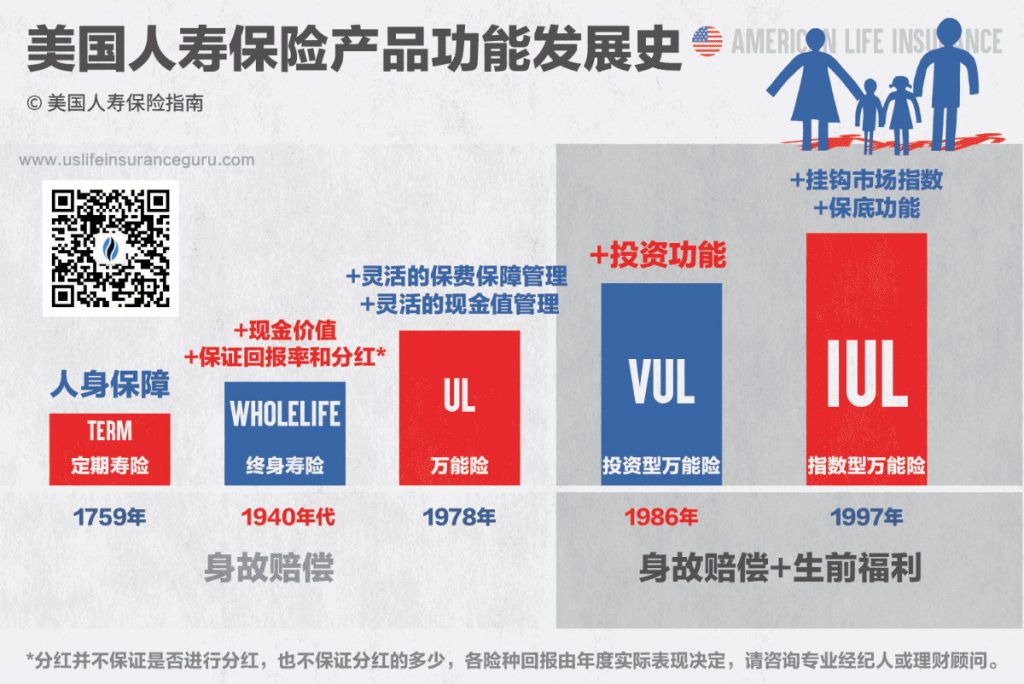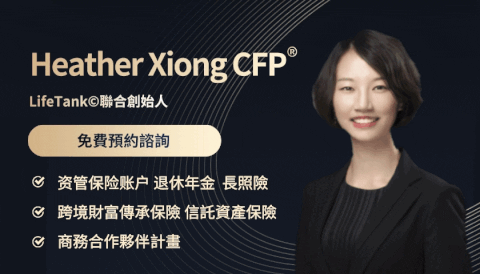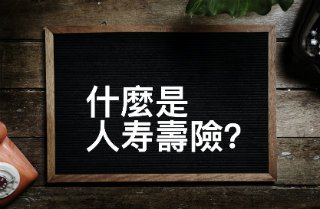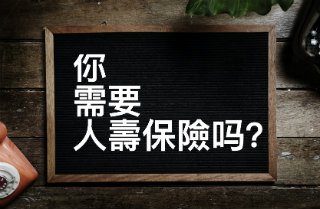From the oldest term life insurance to the popular index universal insurance in the market, how they work, this article will explain one by one.
American Life Insurance Guide > Life Insurance Academy > How does life insurance work?
The most basic principle of life insurance is clear at a glance: policyholders regularly pay a sum of money—the "premium"—to the insurance company.If the policy holder dies within the validity period of the policy, the insurance company pays a large amount of tax-free money-the "death benefit".The entity receiving the money is often a family member or relatives and friends, and is called the "beneficiary."Death compensation helps surviving beneficiaries avoid financial difficulties or achieve financial goals, such as paying mortgages and funding their children to go to school.
The price principle is also simple and clear.The premium price of life insurance is mainly determined by the death risk of the policyholder. The estimated death risk is mainly composed of the following parts: age, health status, health and medical history, insurance period, and compensation amount.
This is the most basic knowledge of life insurance.In theory, you know these basic knowledge is enough to buy basic life insurance products, such as term life insurance.However, with the changes in the market over the past century, insurance products have evolved to be more than just a protection tool.When you learnWhat is life insurance"I also hope to learn more to determine which products are more suitable for your financial planning. The next article on "How different types of life insurance products work" may be able to help you.

In this article, you will learn:
- How does term life insurance work?
- How does participating whole life insurance work?
- How does universal insurance work?
- How does exponential universal insurance work?
How does term life insurance work?
Most people who want to apply for life insurance will have heard ofTerm life insurance.This product is simple and clear, cheap, and suitable for most people who need basic protection.The main difference between it and other products is thatValidity period of the guarantee和How death compensation worksThese two parts.
Just like the name "term life insurance", it is a "term" insurance product that will only be valid for a certain period of time.This period is generally between 5 and 30 years.Term life insurance provides death compensation for the insured during this effective protection period.
So what happens when the "regular" expires?Assuming that after a term life insurance expires, and the policyholder is still healthy, then this product willinvalid if expiredUp.You do not need to pay premiums for this, and you also lose this protection at this time.The cheap term life insurance is cheaper in this period of invalidation.The principle is: the older you are, the higher the risk of death. When you are young, you are covered. For insurance companies, this is when they are at the least risky.When you are 70 or 80 years old, this is the time when you are most vulnerable to death and the highest risk, but the insurance company's regular coverage has expired early.Insurance companies have little risk, so compared to other products, term life insurance is so cheap.
But conversely, this periodically obsolete product feature can also be used to meet our needs at different stages of life. For example, after 30 years, the mortgage that needs to be repaid will be paid off, or after 10 years, family members and children will be Can live independently, no longer need to rely on you.It is reasonable to use the feature of term life insurance to be voided regularly to protect the specific needs of these 30 and 10 years.In the following two cases, the product will naturally expire and become invalid:
- In the foreseeable future, there will be no more people who need to support or depend on your income.
- In the foreseeable future, you will be fully financially capable of achieving self-protection.
At the end of life, most people no longer need life insurance products, and there is no need to pay extra.
But what happens when your term life insurance expires and you still need protection?Age is the main factor affecting premiums. If your 30-year term life insurance expires, your age is not too young at this time. If you still need insurance products, the premiums may be very, very expensive. Most people Therefore, insurance will be waived.In order to solve this problem, most term life insurance products will have an additional clause or additional contract that can be converted into life insurance products, which can help customers who need lifetime protection meet their needs.
How does the savings-participating whole life insurance work?
SuchLifetime insuranceThe product is one of the types of life insurance that can provide you with lifetime protection.Its main two characteristics are:
- This type of product is valid for life and never expires
- In addition to the death compensation part, this type of product also has a "cash value" part.
Like the name, as long as you keep paying the premium, whole life insurance will cover the whole life.
How does the cash value part of participating whole life insurance work?
The simplest way to explain this type of whole life insurance is: a term life insurance with a savings account function.Periodic refers to life, and deposits give interest.
The savings function of this type of product is like setting up a savings account in a bank, except that the savings function in the policy has a special name, called "Cash value"Part. The premium you paid, after paying the fixed insurance cost, the remaining part is automatically converted into cash value.
Insurance companies will regularly pay dividends based on the company's profitability.Over time, the cash value in insurance will increase.The insurance company promises a given minimum rate of return. For example, the guaranteed annual rate of return for the part of the promised cash value is %4. Customers can use the cash value in the policy in a certain way, such as borrowing cash from the policy by borrowing. One of the benefits of this insurance.
As long as you keep paying premiums, the cash value part will continue to grow.What about these cash values when you die?The answer is simple. The accumulated cash value will become part of the death compensation, which will be paid to the beneficiary you selected according to the death compensation amount.Note that this does not mean that in addition to the death compensation, this money is also compensated.
How does universal insurance work?
Universal insurance, like dividend-type whole life insurance, guarantees lifetime and has a cash value function.However, universal insurance has 3 additional features, they are:
- Flexible premium policy
- Fixed or adjustable death benefit
- Tax-free investment function
A more intuitive analogy is that the cash value of participating whole life insurance is asaving account, Earn a guaranteed "deposit interest rate" by way of dividends, and the cash value of universal insurance is aInvestment wealth management account, Enjoy some tax incentives, and be managed by insurance companies.Therefore, customers who purchase universal insurance are always willing to pay more premiums to increase the cash value after deducting the basic expenses.With the improvement of the market and the accumulation of time, the cash value continues to increase, not only can be borrowed and used, but also can be used to pay future premiums.
Universal insurance usually compares retirement plans with 401(k) retirement plans.
If you borrow a sum of money from the universal insurance policy, and unfortunately you pass away for some reason during this period, and the loan has not been repaid, the money will be deducted from your death compensation.At the same time, if you do not withdraw the cash value part of your universal insurance policy while you are alive, the insurance company will keep the money forever.In other words, the cash value part of universal insurance will not be paid to your insurance beneficiary.
How does index universal insurance work?
Index Universal InsuranceThe basic function is inherited from universal insurance, and it also has the function of guaranteeing lifetime and cash value.The part of the cash value put in by the user can gradually increase under the condition of good market conditions.
The difference between exponential universal insurance and other products isThe way cash value grows.Most of the other products clearly disclose the rate of return on investment, or the rate of guaranteed return, but the return on index universal insurance policies is directly linked to the stock index.
Specifically, when a premium is paid, part of the money is used to pay the insurance cost of the insurance policy part of the policyholder's annual insurance coverage.The funds after deducting this cost are accumulated in the cash value part of the policy.The total cash value is invested in index markets, such as the US S&P 500, the German 30DAX Index, or the MSCI Emerging Market Index, and is included in income based on the rise or fall of the index.The insurance company's policy allows policyholders to choose different indices.
When the market environment deteriorates, index universal insurance provides a fixed interest rate strategy with a bottom guarantee, generally 0%. That is to say, even if the stock index plummets, the insurance company still protects the user's cash value from losing money.This is the core feature of exponential universal insurance:Allow policyholders to exempt market risks.






